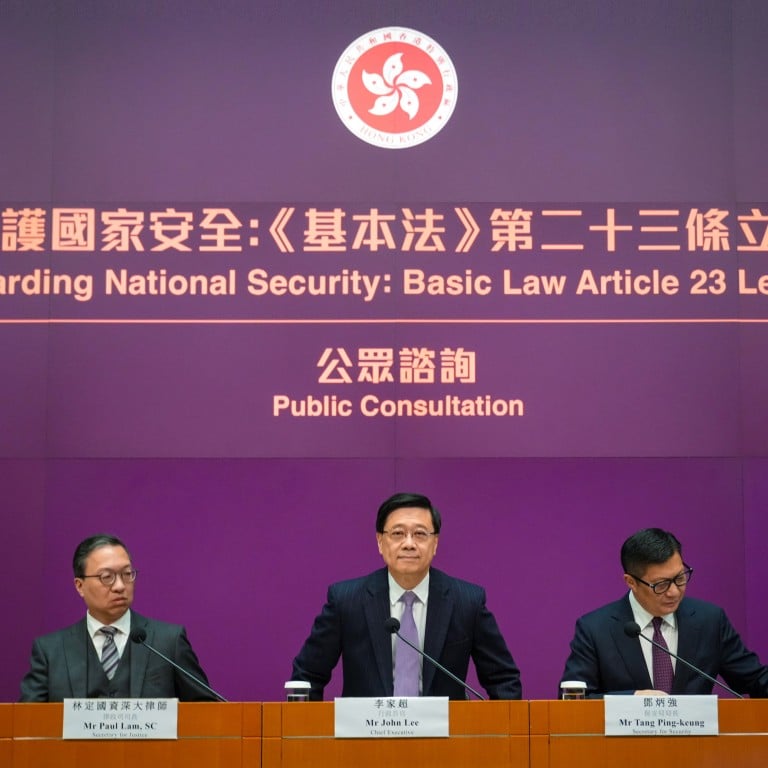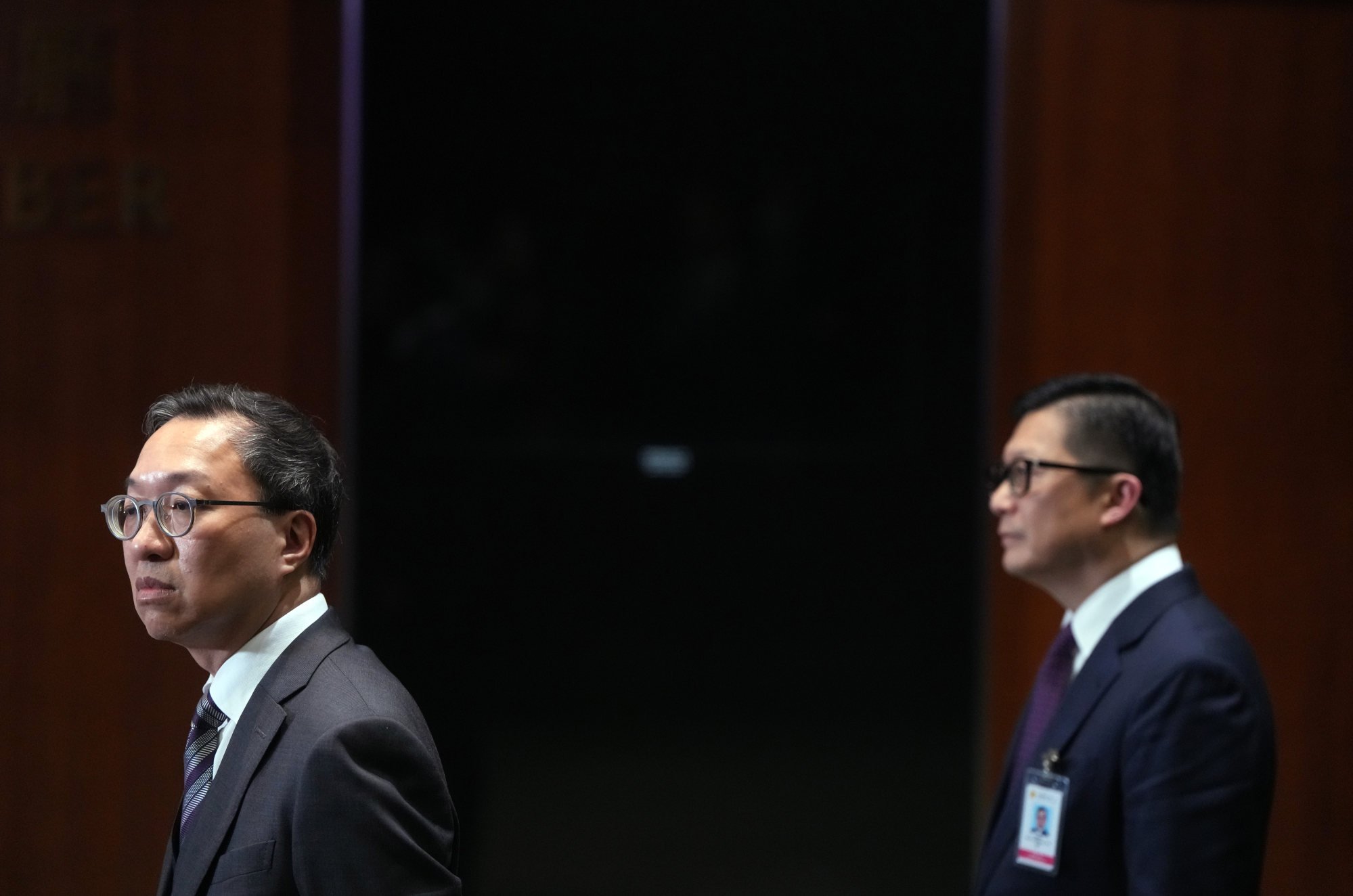
Hong Kong’s Article 23 national security law likely to state maximum penalties for offences, justice minister says
- Domestic national security legislation is likely to follow common law practice of stating maximum penalties for offences rather than minimum ones as Beijing law does, Secretary for Justice Paul Lam says
- But Lam adds that it is too early to discuss penalties under Article 23 as society should first settle on offences
“It is a national law,” Lam told a TV programme, referring to the legislation Beijing imposed in 2020 in the wake of anti-government protests. “It is drafted according to mainland practice, which sets the minimum penalty and different ranges for the penalty.
“We normally state the maximum penalty in statutory law. I believe the new law is very likely to use the traditional way to handle local national security legislation.”

The government on Tuesday released details of the home-grown national security law mandated by Article 23 of the Basic Law, the city’s mini-constitution. It will sit alongside the Beijing law, which outlaws secession, subversion, terrorist activities and collusion with a foreign country.
For instance, the current law requires that defendants found guilty of especially dangerous acts of subversion shall be sentenced to life imprisonment or jailed for not less than 10 years.
But Lam added that it was too early to discuss penalties under Article 23 as society should first settle on the offences.
The proposed domestic law seeks to outlaw five new types of offences: treason; insurrection, incitement to mutiny and disaffection, and acts with seditious intention; sabotage; foreign interference; theft of state secrets and espionage.
The proposed offence related to acts with seditious intention covers those invoking hatred, contempt, disaffection against China’s fundamental system, the central government, and Hong Kong’s executive, legislative and judicial authorities.
No need for Hong Kong academics to worry about interference offence: officials
Asked whether someone who continuously criticised the Legislative Council would be considered to be invoking hatred, Secretary for Security Chris Tang Ping-keung said it was reasonable to raise an opinion but whether doing so constituted an offence would depend on the person’s intention.
“It is about whether one’s intention is to give advice or give sweeping comments. One may be telling the truth but if one just focuses on one fact, repeatedly stating and exaggerating with deliberate tones with an intention to invoke, it is different,” Tang said.
The proposed law includes an offence of sabotage that endangers national security, such as damaging or impairing public infrastructure, including water and energy facilities.
As an example, the security minister said someone unlocking the gate of a power plant and making it easy for rioters to damage it could be considered “impairing” the infrastructure. He said that disclosing the design layout and location of power stations was also likely to endanger national security as troublemakers could damage them.
UK, US security laws referenced for Hong Kong’s Article 23 are ‘overbroad’
But when asked about sitting on a flyover, similar to what protesters did during the Occupy Central civil disobedience movement in 2014, Tang said such an act was “just an obstruction”.
Lam earlier said that the government was considering whether to allow a public interest defence for state secret offences, but that the threshold for making the argument would be high. A person would not be charged for instance if they disclosed information that led to many lives being saved, he said.
But the minister elaborated on Sunday that the defence could only be used if disclosing the information was the only way to notify the public of the threat.
He also said the suggested offence of “external interference” would cover participation in activities organised by external forces and engaging in conduct under their supervision.
Lam said the proposed legislation had a clear definition of the offence, stressing that the purpose of the law was to tackle national security risks rather than restricting normal interactions.
The minister added that the government was also considering barring arrestees from meeting lawyers who might pass along information that obstructed a police investigation or continued to endanger national security.
But he said authorities would probably rely on the court to make the decision about a defendant’s contact with legal defence.

